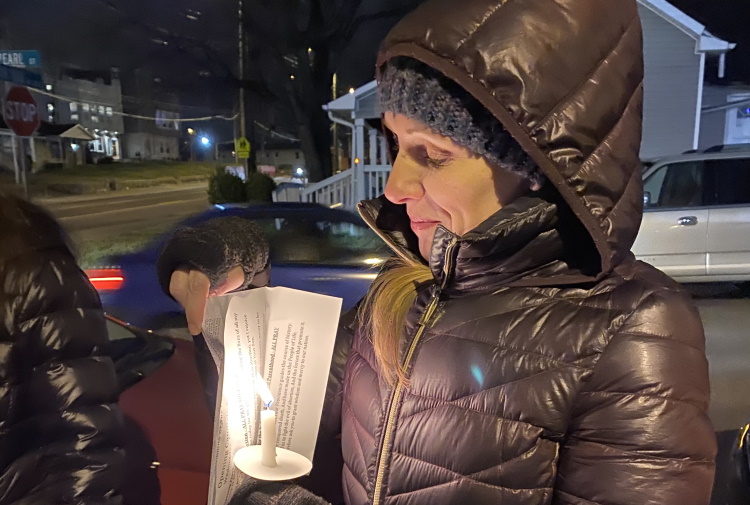(PRI) On May 17, 2024, Deputy Sóstenes Cavalcante, a member of Brazil’s House of Deputies, submitted bill #1904/2024, seeking to stop the barbarity of late-term abortions in the country. The legislation penalizes doctors who perform abortions after the fifth month of pregnancy (22 weeks) with the same penalties as homicide. The logic is simple: killing a child who could already live outside her mother’s womb constitutes true infanticide.
Sóstenes Cavalcante’s bill aims to confront the pro-abortion escalation advocated by the government of President Lula da Silva, which recently adopted the “International Classification of Diseases” published by the World Health Organization (WHO). That document expands the definition of abortion to include infanticide.
Currently, the Public Ministry permits doctors to perform abortions in cases of rape through all nine months of pregnancy.
The debate in the House of Representatives on PL 1904/2024 is underway, and the government is already signaling significant opposition.
Until 2022, the WHO followed the doctrine and medical practice that defined abortion as “removing a non-viable fetus from the mother’s womb.” Regardless of its morality or legality, that was the definition. But in 2022, the WHO’s 11th International Classification of Diseases – ICD-1– came into effect. That document, which the WHO updates every ten years, redefined abortion to mean “the expulsion of the fetus, regardless of the stage of pregnancy, through the intentional interruption of pregnancy, without the intention of producing a live birth.” Note that in this second WHO definition, the viability limit, estimated at 22 weeks of pregnancy, is removed, and the scope of “abortion,” induced and intentional, extends until the moment of birth.
Thus, suddenly, without much fanfare and in the shadow of the WHO procedures for drafting these documents, what was previously understood as infanticide is now understood as abortion.
[Click here to subscribe to Pregnancy Help News!]
With this semantic change, they no longer needed to change any law but could simply apply the old law with a new interpretation. In this way, laws that allow abortion up to the fifth month of pregnancy can now be understood and applied up to the moment of birth. And it was no accident. Given that the proposal that abortion is a human right is already being pushed globally, the WHO’s effort now claims that this “right” includes killing a baby at any point in the pregnancy.
Based on this new definition, Brazil’s Public Ministry began to demand, under the threat of legal action, that doctors perform abortions in cases of rape. Currently, Brazilian laws do not punish abortion due to rape.
Of course, this harmful influence is not limited to Brazil. It constitutes just one more imposition by the WHO on all countries despite all of the organization’s errors and excesses committed during the COVID pandemic under the pretext of “global public health.”
Before 2022, even left-wing governments like the first Lula Da Silva government (2003-2011) or that of Dilma Rousseff (2011-2016) prohibited killing unborn children by interrupting the pregnancy after viability. A rape victim or a woman with some obstetric complication did not need to continue the pregnancy after 22 weeks because, at that stage of gestation, the baby’s life is already viable outside the mother’s womb.
Therefore, after the 22nd week of pregnancy, when there is already the possibility of extrauterine life, removing a baby from the mother’s womb was not considered an abortion before 2022. If the baby’s life was saved, it was a premature birth. If it was to kill the baby, it was infanticide. It was for this reason, among others, that the “Technical Norms for Abortion in Case of Violence” of the Brazilian Ministry of Health prohibited performing abortions after the 20th week of pregnancy because it was no longer an abortion. The law does not punish abortion in case of rape, but after the baby is viable, it is homicide.
Sóstenes Cavalcante’s PL 1904/2024 is designed to prevent this macabre advance of late-term abortions in Brazil: such procedures are actually infanticides.
Can these late-term abortions be equated with homicide? The answer is yes, and the reasoning is simple.
- Is a baby that can survive outside the womb a human being? Yes.
- Is killing a human being a homicide? Yes. It is the very definition of homicide. Homicide means = hominis occisio = killing a man.
- Therefore, killing a baby that can survive outside the womb is homicide.
Tweet This: Is a baby that can survive outside the womb a human being? Yes. Is killing a human being a homicide? Yes.
Detractors of PL 1904 have once again resorted to the narrative “anti-abortion = anti-woman,” based on the assertion that a raped woman (who aborts a viable child) would suffer a more severe penalty than the rapist does. That facile argument ignores PL 1904’s stipulation that the judge can examine each case and is empowered to considerably reduce the woman’s sentence or even eliminate it.
After all, in most of these cases, the woman is vulnerable due to her desperation, an extenuating circumstance that does not apply to the doctor. In reality, abortion advocates don’t protect the woman – she is, in fact, the second victim of abortion.
No, they protect the abortion industry and its operators.
What PL 1904 proposes does not restrict in any way what the current law permits. Rather, it opposes the gruesome escalation of the law on abortion that has prevailed in Brazil since 1989.
And today, homicide advocates can claim WHO as their ally.
Editor's note: This article was published by Population Research Institute and is reprinted with permission. Information on a petition initiaitive by PRI concerning the WHO is available in the original article.






